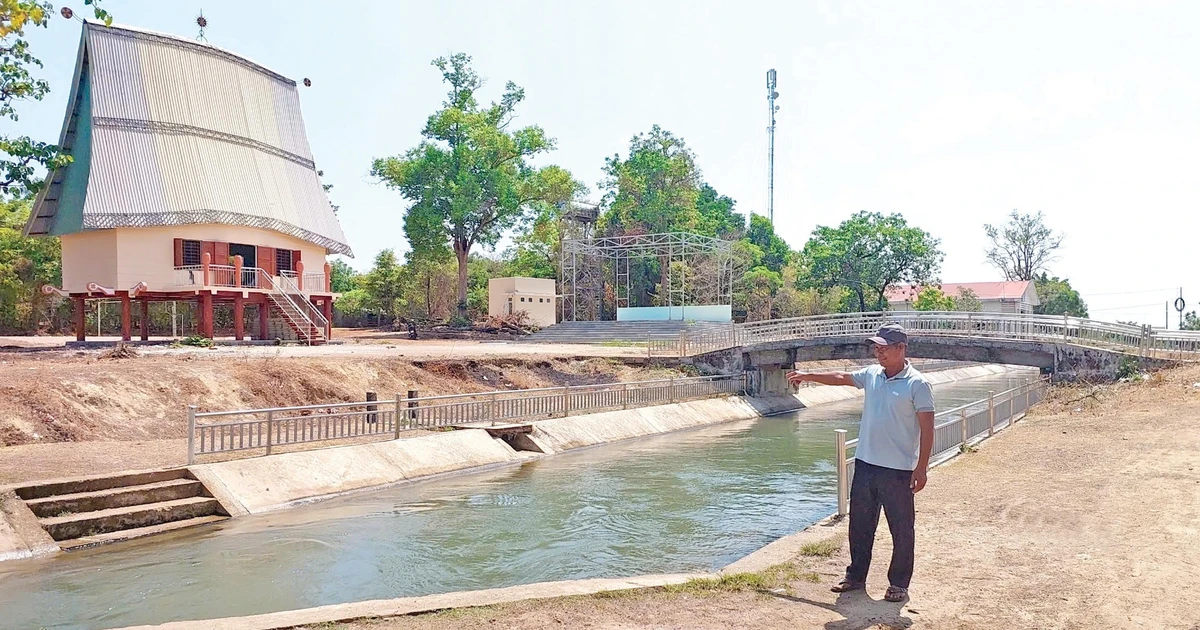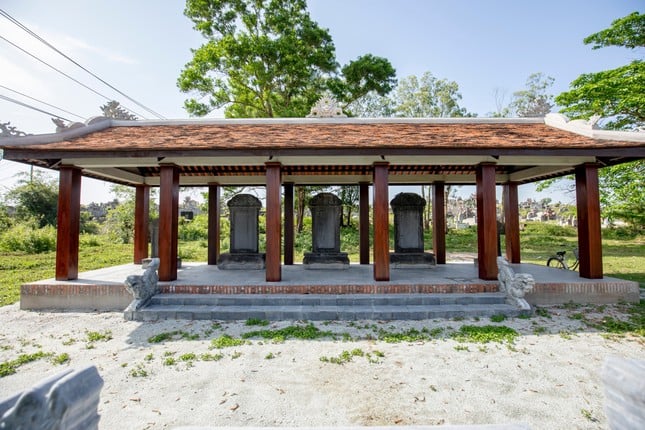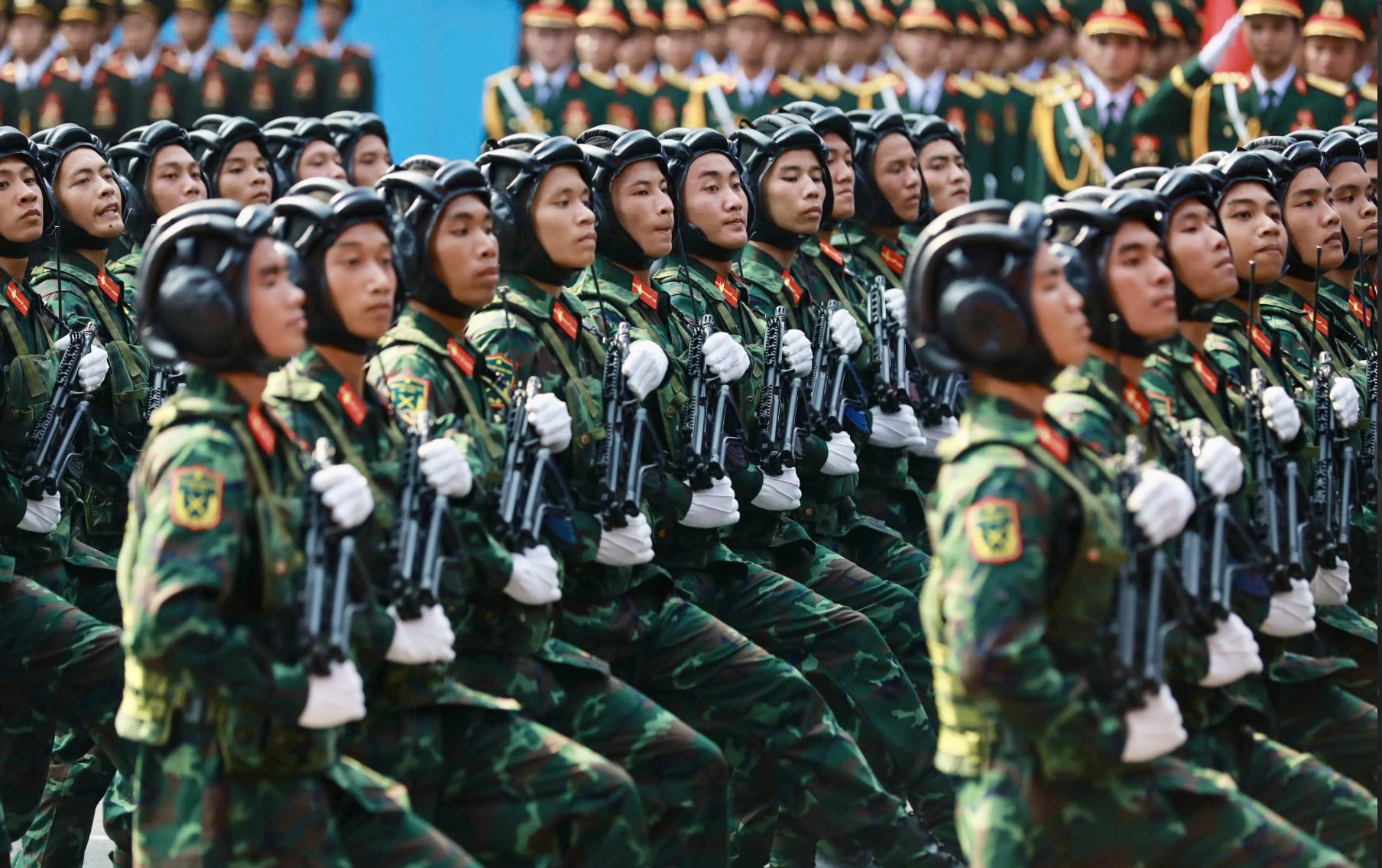According to the schedule, the 43rd session of the National Assembly Standing Committee will take place in two phases: Phase 1 will last from April 14 to 17 (reservation from April 18 to 21); Phase 2 will take place from April 23 to 28.
According to the scheduled program, in the opening session (April 14), the National Assembly Standing Committee will consider and approve the Resolution on administrative unit arrangement.

This Resolution is issued to replace Resolution No. 35/2023 of the National Assembly Standing Committee on the arrangement of district and commune-level administrative units for the 2023-2030 period.
Regarding this content, Minister of Home Affairs Pham Thi Thanh Tra will present a report, Chairman of the Law and Justice Committee Hoang Thanh Tung will give a summary report of the review.
After the discussion session, the National Assembly Standing Committee will vote to pass the draft resolution in the morning of the same day.
Before submitting the draft resolution to the National Assembly Standing Committee for consideration and approval, the drafting agency sent the draft resolution to the Ministry of Justice for appraisal.
The initial draft stipulates the criteria for arrangement of provincial and communal level units in line with the 6 criteria that have been reviewed and agreed upon by the Politburo.
Specifically, the criteria are natural area; population size; history, tradition, culture, religion, ethnicity; criteria on geo-economics; geopolitics; criteria on national defense and security.
For administrative units with isolated locations and difficult to organize convenient traffic connections or administrative units with especially important locations that affect national defense, security and the protection of national sovereignty, arrangements will not be made.
In terms of quantity, it is expected that there will be about 34 provinces and cities based on the rearrangement of the current 63 provinces and cities; ending the operation of district-level organizations and organizing about 5,000 communes and wards compared to the current total of 10,035 commune-level administrative units.
According to the Ministry of Home Affairs, the policy of rearranging commune-level administrative units, not organizing district-level units, and merging provinces is a major policy with a strategic, long-term vision, for the long-term and sustainable development of the country.
The Government submits the project dossier before May 30.
Regarding the roadmap for implementing the arrangement and reorganization of commune-level administrative units, according to the plan, after the resolution of the National Assembly Standing Committee is issued, the provincial People's Committee will prepare a project dossier before May 1. Before May 30, the Ministry of Home Affairs will appraise and prepare the Government's project dossier to submit to the National Assembly Standing Committee.
Regarding the establishment of communal-level civil servants, in the revision of the current Law on Civil Servants, the submission of the Ministry of Home Affairs clearly stated that, to be consistent with the 2-level local government model, the draft revised the concept of cadres and civil servants, which stipulates cadres and civil servants at the central, provincial and communal levels (removing the district level).
On that basis, the draft law unifies the management of cadres and civil servants from the central to communal level, without distinguishing between communal and provincial civil servants, ensuring compliance with the Party's policy on interconnectivity in cadre work.
By the end of 2024, the number of commune-level cadres and civil servants will be 212,606 people. Of these, 92.4% will have a university degree or higher and 7.6% will have a college degree or lower. The number of commune-level cadres and civil servants who do not meet the standards is only a small percentage and will be resolved according to the policy of ensuring legitimate interests according to the Government's regulations.
Notably, the draft law proposes to add transitional provisions to ensure that the current number of commune-level officials and civil servants will remain the same until the review, streamlining, restructuring and arrangement according to job positions of local authorities are completed.
Within 5 years, provinces and centrally-run cities must arrange, streamline and restructure their staff according to the approved job position plan.
According to Luan Dung (TPO)
Source: https://baogialai.com.vn/uy-ban-thuong-vu-quoc-hoi-xem-xet-thong-qua-nghi-quyet-sap-xep-don-vi-hanh-chinh-post318539.html



![[Photo] "Lovely" moments on the 30/4 holiday](https://vstatic.vietnam.vn/vietnam/resource/IMAGE/2025/5/1/26d5d698f36b498287397db9e2f9d16c)
![[Photo] Binh Thuan organizes many special festivals on the occasion of April 30 and May 1](https://vstatic.vietnam.vn/vietnam/resource/IMAGE/2025/5/1/5180af1d979642468ef6a3a9755d8d51)


![[Photo] Ha Giang: Many key projects under construction during the holiday season](https://vstatic.vietnam.vn/vietnam/resource/IMAGE/2025/5/1/8b8d87a9bd9b4d279bf5c1f71c030dec)






















































































Comment (0)